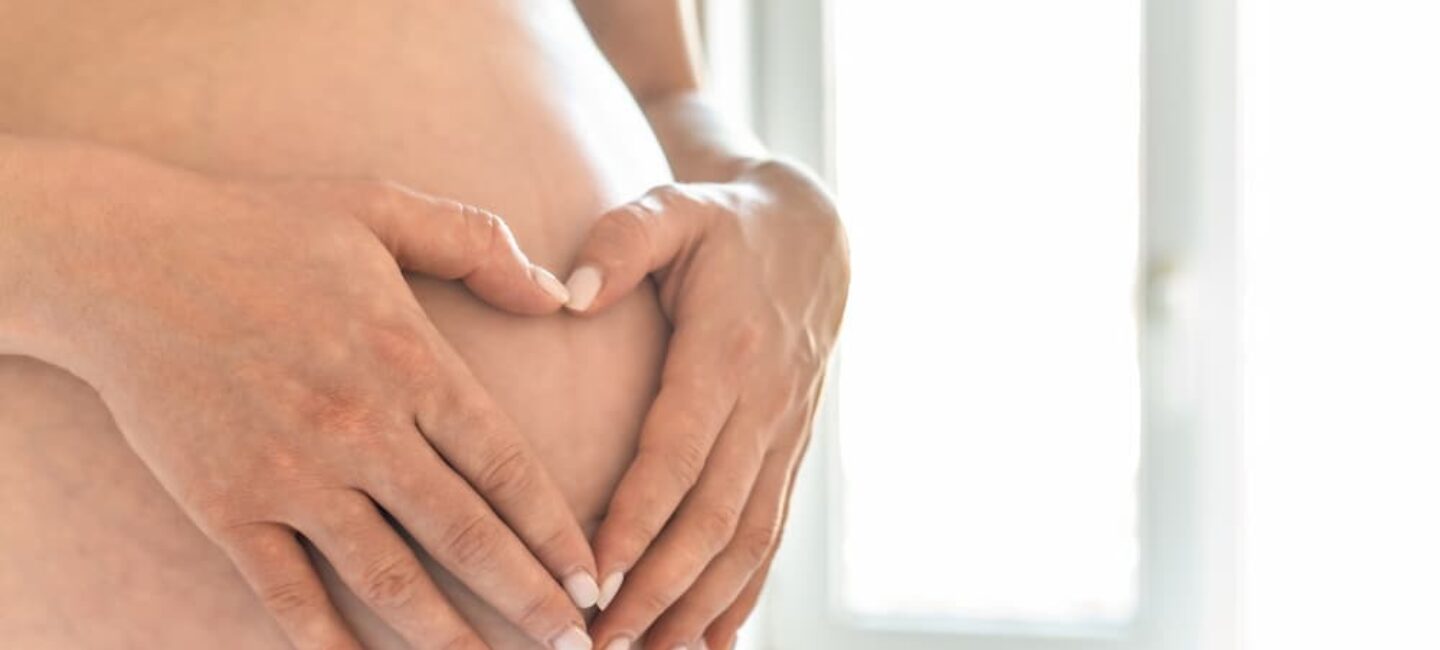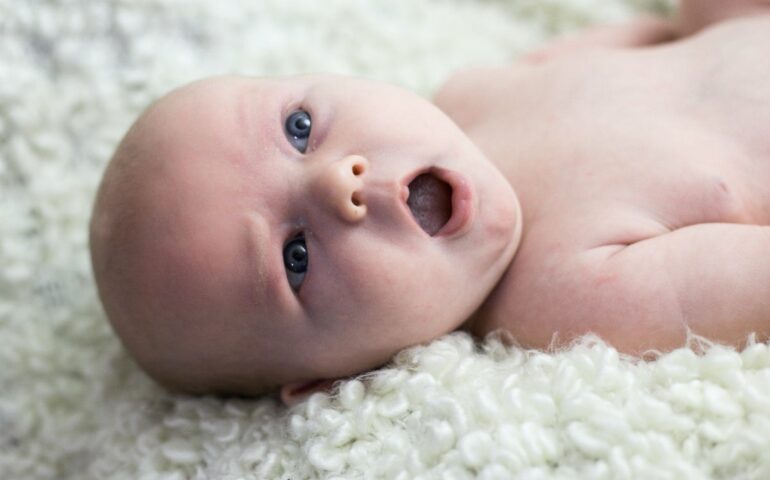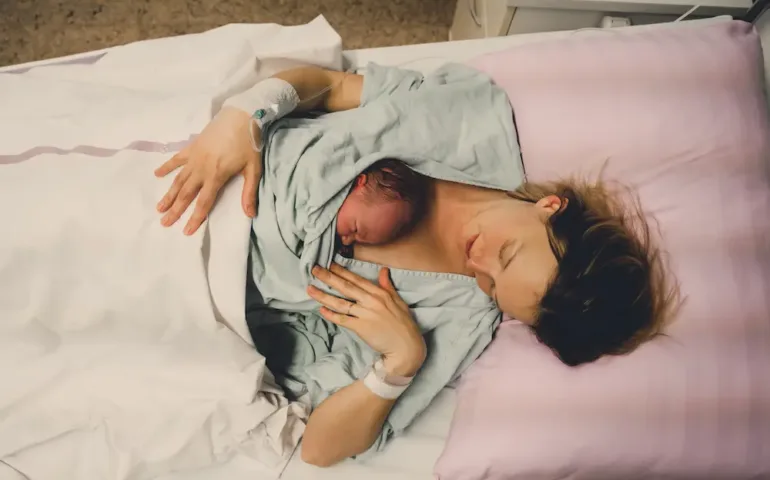
Since you became pregnant, your belly sometimes feels itchy… In fact, you just can’t help scratching it! Is this a common phenomenon? What causes this itching? How can you make it stop?
May explains everything in this article.
Why does my belly itch during pregnancy?
During pregnancy, you may experience itching on your belly and it’s not necessarily something to worry about. As your skin stretches, it’s completely normal — your baby is growing quickly month after month and needs more room in your belly. As a result, the skin becomes more sensitive and can make you want to scratch.
Although this symptom is usually harmless, in some cases it can be caused by a medical condition that requires attention. This is especially true for the following conditions.
Intrahepatic Cholestasis of Pregnancy
This is a liver and gallbladder disorder caused by pregnancy hormones, most often appearing in the third trimester (and rarely in the second). It is characterized by intense itching without rash, localized on the belly, palms of the hands, and soles of the feet, recurring especially at night. This requires urgent medical consultation.
To give you an idea, here’s what healthcare professionals do when managing it:
- Confirm the diagnosis with a fasting blood test in the morning to measure bile acid levels in the blood.
- Ensure that the cholestasis is related to pregnancy and not to another liver issue. This involves blood tests to rule out hepatitis or infection, as well as an ultrasound of the liver and bile ducts to check for gallstones.
- Start treatment: medication is given to stop the itching and neutralize bile acids present in the blood.
- Set up monitoring of both the mother and fetus, as well as for other possible complications more common in cases of cholestasis.
- In rare cases, in situations of severe cholestasis and advanced pregnancy, labor may be induced.
PUPP (Polymorphic Urticarial Plaques of Pregnancy)
In French, these are polymorphic eruptions of pregnancy. The name sounds a bit intimidating, we agree… This condition can look quite dramatic (especially with red papules appearing all over the body) but it is completely harmless. Here’s what you need to know:
- The cause is still unknown — one of pregnancy’s many mysteries.
- It usually appears during the last two months of pregnancy and fades within six weeks after giving birth.
- It causes intense itching, sometimes even before visible lesions appear.
- The eruptions begin on the belly (especially in the stretch mark areas) and can spread to the back, neck, arms, and legs, forming patches.
- It often looks like hives, sometimes with small pustules filled with clear fluid.
- There is no risk of contagion — no danger to the fetus or to the baby after birth.
- Treatment involves applying dermocorticoid creams that are safe for pregnancy and breastfeeding. Antihistamines may also be prescribed to reduce itching, especially at bedtime.
Want to learn more? Feel free to download the May app, where you’ll find plenty of resources to support and guide you throughout your pregnancy.
How can hormonal changes affect itching?
Hormonal changes can also cause some itching, especially in areas where stretch marks appear.
Why? Because pregnancy hormones reduce sebum production (an oily substance secreted by the skin through sebaceous glands), which dries out the skin. To relieve it, the best thing to do is keep your skin as moisturized as possible.
Which products are safe to relieve itching during pregnancy?
To relieve pregnancy-related itching, it’s important to nourish and deeply hydrate your skin. Many moisturizing creams and nourishing oils are available on the market — at all price points!
Be sure to use creams and oils that are safe for pregnancy. You may already know that many essential oils are not recommended during this time. To avoid any risk, we recommend choosing creams and oils specifically designed for pregnancy or carefully reading ingredient labels before buying.
If in doubt, you can also reach out to our midwives via the May chat service, available 7 days a week from 8 a.m. to 10 p.m.
Which home remedies can help reduce abdominal itching?
To naturally soothe itching, try these tips:
- Take showers or baths with lukewarm water. Avoid water that’s too hot or too cold, as extreme temperatures can weaken the skin and worsen itching.
- When washing, choose a soap or shower gel that’s gentle and fragrance-free.
- When drying off, pat your skin gently so as not to irritate your belly.
- Wear loose, natural-fiber clothing to prevent irritation.
In general, try to avoid scratching as much as possible.
When should you see a doctor for itching during pregnancy?
As soon as the itching becomes too intense or causes concern, schedule an appointment with your healthcare provider to discuss it.
If you experience itching on your belly and extremities (see the symptoms of intrahepatic cholestasis of pregnancy above), do not wait to consult a doctor — you should go directly to the maternity emergency room for evaluation.
Now you know everything about belly itching during pregnancy! Remember: avoid scratching, keep your skin moisturized and nourished, and consult a professional if you’re ever unsure.
–
Photo: frimufilms
This text was translated from French by an artificial intelligence. The information, advice, and sources it contains comply with French standards and may therefore not apply to your situation. Make sure to complement this reading by visiting the May US/UK app and consulting the healthcare professionals who are supporting you.




